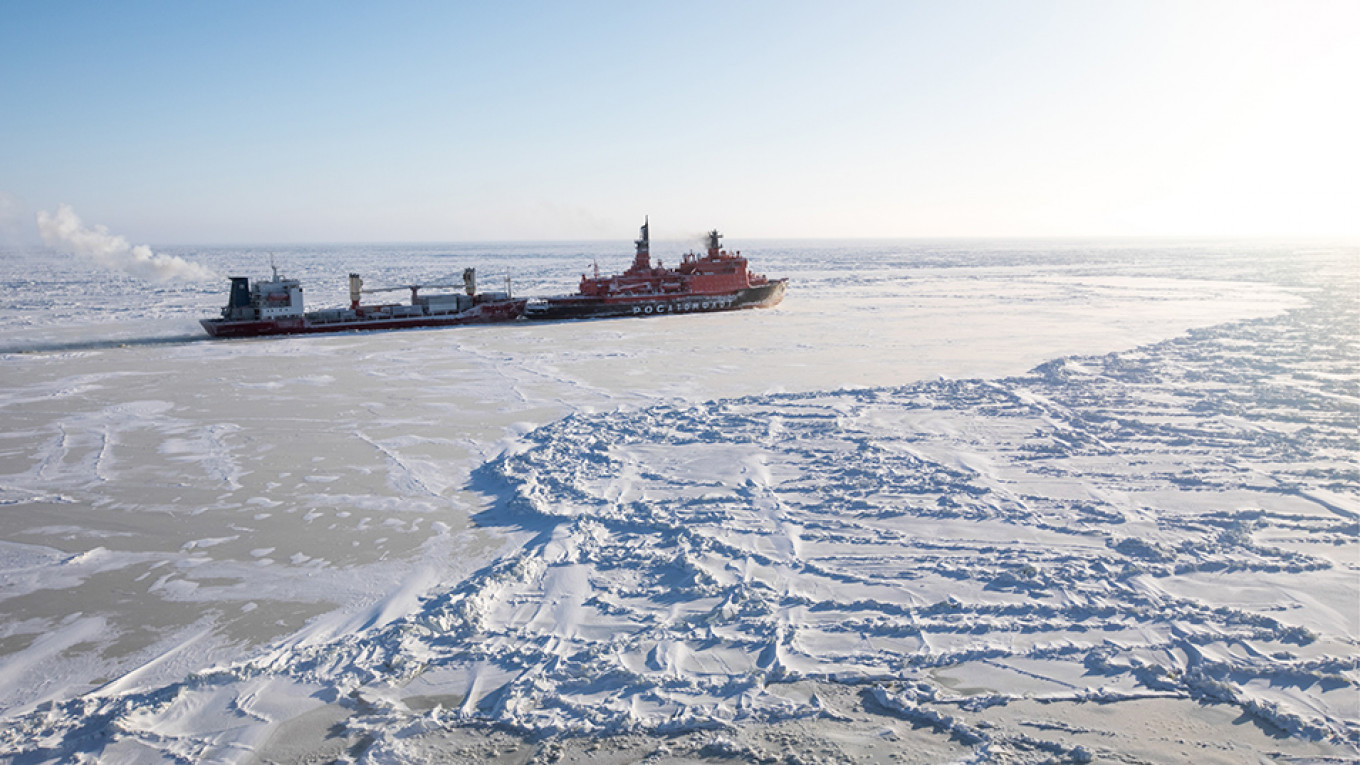
Infrastructure development was the top issue when Russian President Vladimir Putin arrived in Beijing on April 25 to attend Chinese President Xi Jinping’s top-level meeting on the Belt and Road initiative.
The meeting was the second of its kind and Putin was the prime guest. Russia is a country of key importance for the Belt and Road initiative, which also includes the maritime part of the grand infrastructure strategy.
During the meeting, Putin said he would like to see the Northern Sea Route become part of China’s Maritime Silk Road.
“We give major attention to the development of the Northern Sea Route [and] are considering the possibility of connecting it with the Chinese Maritime Silk Road,” the president told the state leaders in the room.
“It would create a global and competitive route that connects northeastern, eastern and southeastern Asia with Europe,” he added.
The Russian president also said he is seeking investment from foreign partners for the development of the Arctic shipping route.
“This kind of large-scale project requires close cooperation with the countries of Eurasia in order to boost transit shipments,” he said, adding that investments are needed to build port terminals and logistics centers.
“We invite the countries represented here to take part in the development,” he said.
As Putin arrived in Beijing, natural gas company Novatek signed two major deals with the China National Oil and Gas Exploration and Development Company Ltd (CNODC) and CNOOC Ltd. Each of the agreements includes a 10 percent participation interest in Arctic LNG 2, Russia’s upcoming major liquified natural gas project.
The CNODC is already a major stakeholder in Yamal LNG, a the project that was launched late 2017.
Liquified natural gas is now the driver of growth on the Northern Sea Route, but other goods could also add volume. Vladimir Putin has made it a national objective to reach an annual total shipping volume of 80 million tons on the route by 2024.
During the recent Arctic Forum in St.Petersburg, state nuclear power company Rosatom said it believed the figure could be as high as 92.6 million tons by 2024, including about 1 million tons of transit shipments.
The Belt and Road Initiative China’s infrastructure strategy that focuses on development and investments in 152 countries and international organizations in several continents. “Belt” refers to the overland routes for roads and railways, and “road” to the sea routes, or the 21st Century Maritime Silk Road.
